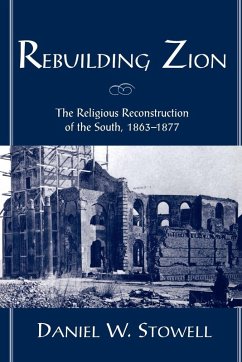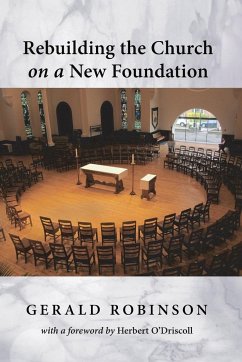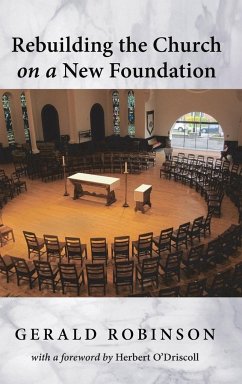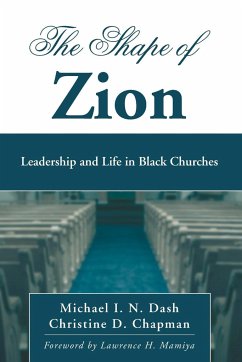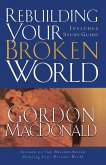Stowell plots the conflicts that resulted from these competing visions of the religious reconstruction of the South. By demonstrating how the southern vision eventually came to predominate over, but not eradicate, the northern and freedpeople's visions for the religious life of the South, he shows how the southern churches became one of the principal bulwarks of the New South, a region marked by intense piety and intense racism throughout the twentieth century.
Both the North and the South viewed the Civil War in Christian terms. Each side believed that its fight was just, that God favored its cause. Rebuilding Zion is the first study to explore simultaneously the reaction of southern white evangelicals, northern white evangelicals, and Christian freedpeople to Confederate defeat. As white southerners struggled to assure themselves that the collapse of the Confederacy was not an indication of God's stern judgment, white northerners and freedpeople were certain that it was. Author Daniel W. Stowell tells the story of the religious reconstruction of the South following the war, a bitter contest between southern and northern evangelicals, at the heart of which was the fate of the freedpeople's souls and the southern effort to maintain a sense of sectional identity. Central to the southern churches' vision of the Civil War was the idea that God had not abandoned the South; defeat was a Father's stern chastisement. Secession and slavery had not been sinful; rather, it was the radicalism of the northern denominations that threatened the purity of the Gospel. Northern evangelicals, armed with a vastly different vision of the meaning of the war and their call to Christian duty, entered the post-war South intending to save white southerner and ex-slave alike. The freedpeople, however, drew their own providential meaning from the war and its outcome. The goal for blacks in the postwar period was to establish churches for themselves separate from the control of their former masters. Stowell plots the conflicts that resulted from these competing visions of the religious reconstruction of the South. By demonstrating how the southernvision eventually came to predominate over, but not eradicate, the northern and freedpeople's visions for the religious life of the South, he shows how the southern churches became one of the principal bulwarks of the New South, a region marked by intense piety and intens
Hinweis: Dieser Artikel kann nur an eine deutsche Lieferadresse ausgeliefert werden.
Both the North and the South viewed the Civil War in Christian terms. Each side believed that its fight was just, that God favored its cause. Rebuilding Zion is the first study to explore simultaneously the reaction of southern white evangelicals, northern white evangelicals, and Christian freedpeople to Confederate defeat. As white southerners struggled to assure themselves that the collapse of the Confederacy was not an indication of God's stern judgment, white northerners and freedpeople were certain that it was. Author Daniel W. Stowell tells the story of the religious reconstruction of the South following the war, a bitter contest between southern and northern evangelicals, at the heart of which was the fate of the freedpeople's souls and the southern effort to maintain a sense of sectional identity. Central to the southern churches' vision of the Civil War was the idea that God had not abandoned the South; defeat was a Father's stern chastisement. Secession and slavery had not been sinful; rather, it was the radicalism of the northern denominations that threatened the purity of the Gospel. Northern evangelicals, armed with a vastly different vision of the meaning of the war and their call to Christian duty, entered the post-war South intending to save white southerner and ex-slave alike. The freedpeople, however, drew their own providential meaning from the war and its outcome. The goal for blacks in the postwar period was to establish churches for themselves separate from the control of their former masters. Stowell plots the conflicts that resulted from these competing visions of the religious reconstruction of the South. By demonstrating how the southernvision eventually came to predominate over, but not eradicate, the northern and freedpeople's visions for the religious life of the South, he shows how the southern churches became one of the principal bulwarks of the New South, a region marked by intense piety and intens
Hinweis: Dieser Artikel kann nur an eine deutsche Lieferadresse ausgeliefert werden.

